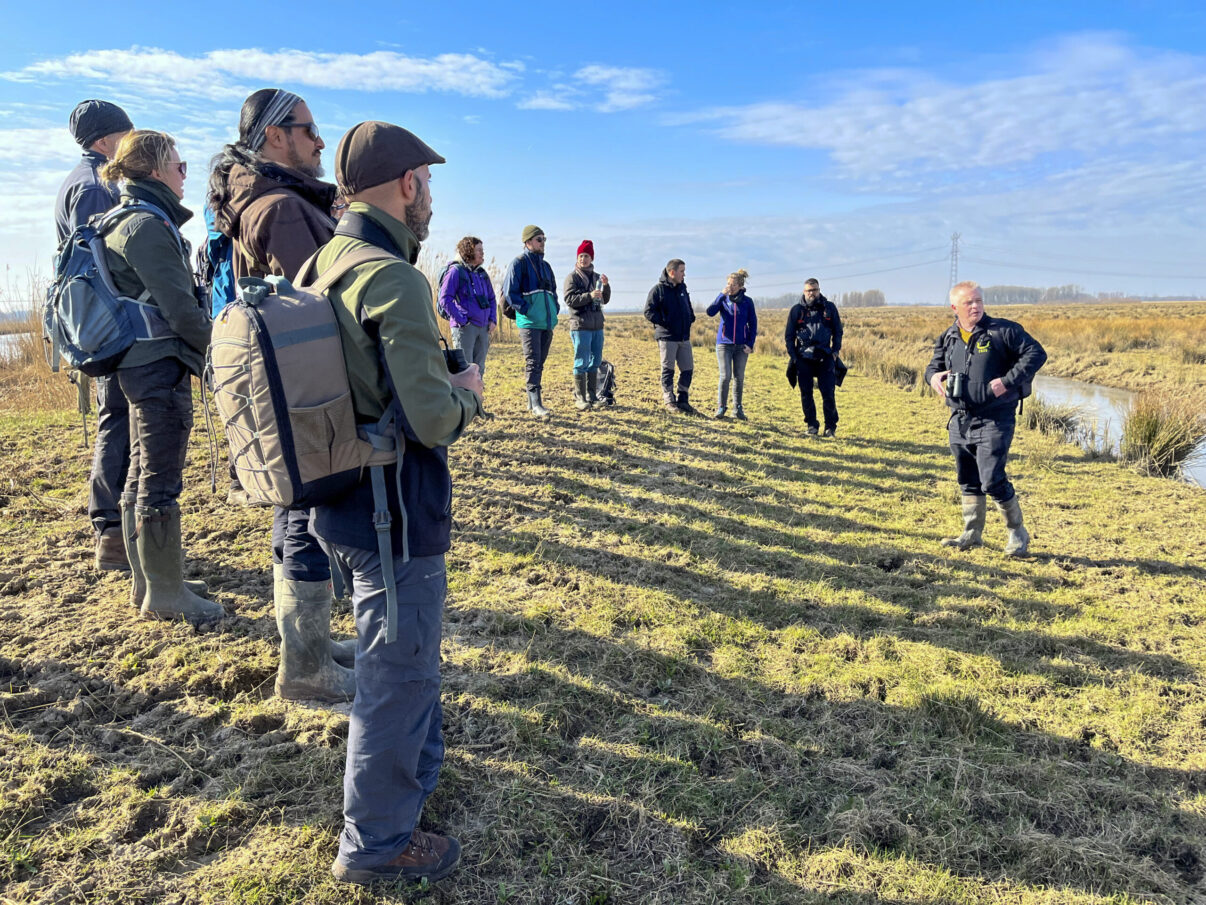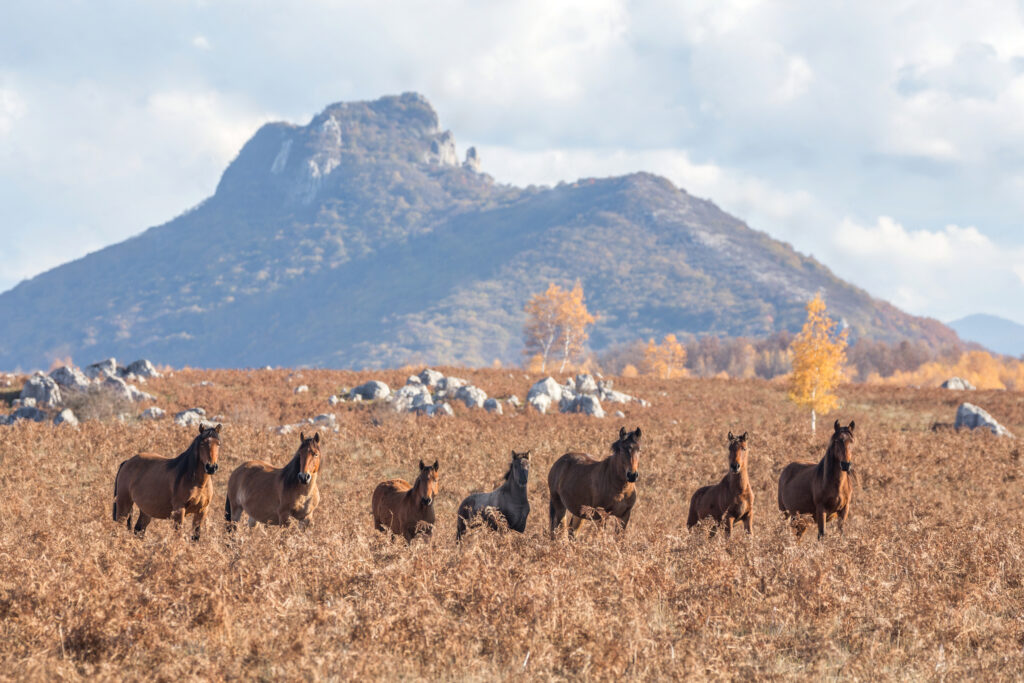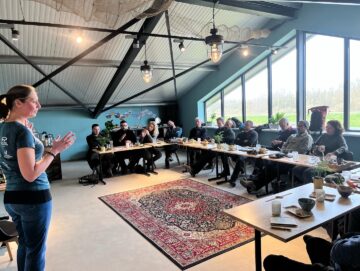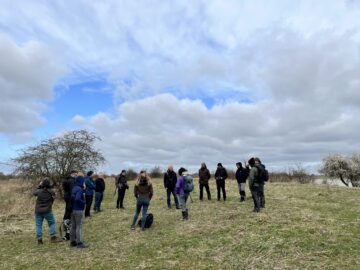Natural grazing by wild and semi-wild herbivores provides a wide range of benefits to both nature and people. A training session held in March will support its scaling up in Rewilding Europe’s operational landscapes.

Essential skills
Today, many of Rewilding Europe’s rewilding teams are working to enhance natural grazing in the landscapes where they operate. Natural grazing by herbivorous animals such as horses, bison, and deer is critical to the functionality and resilience of many European ecosystems – it can increase biodiversity, reduce the risk of catastrophic wildfire, and boost carbon storage and climate change resilience. Returning iconic grazers such as European bison and kulan (Asiatic ass) to the landscape can also support the growth of nature-based economies, generating jobs and a new pride in local nature.
To enhance the natural grazing-related skills and expertise of various rewilding landscape team members, a three-day training session was held in the Netherlands in March. The session, which was attended by various team members from the Velebit Mountains (Croatia), Oder Delta (Germany/Poland), Central Apennines (Italy) and the Greater Côa Valley (Portugal) rewilding landscapes, boasted a varied programme, with presentations from a wide range of experts.
Team support
The natural grazing-related expertise and experience of Rewilding Europe’s rewilding landscape teams varies widely between and within teams. Some landscapes, such as the Velebit Mountains, have been engaged in natural grazing for many years. Others, such as the Oder Delta, are in the early stages of planning their natural grazing journey.
“The main aim of the training was to give everyone involved a good grounding in the various issues involved with natural grazing, to update the skills of various team members, and to exchange the latest insights and news from the field,” explains Julia Clark, Rewilding Europe’s European Wildlife Bank Coordinator, who gave a presentation on animal health and welfare. “Going forwards, the relevant teams are then well equipped to decide whether to introduce or increase natural grazing in their landscapes.”

Varied presentations
The three-day training session covered a wide range of subjects. Professor Liesbeth Bakker, Europe’s first professor of rewilding, talked about the ecological impacts of natural grazing, while Leo Linnartz of Dutch NGO ARK Nature introduced participants to the so-called “Circle of Life“.
There were also presentations on preparing areas for natural grazing, communications around natural grazing initiatives, and the GrazeLIFE initiative, which ended in 2021. Roeland Vermeulen, Director of FREE Nature, talked about semi-wild herds of herbivores and how they are monitored and managed in the areas visited during the training in the Netherlands, while Ronald Goderie, Director of the Taurus Foundation, talked about using natural grazing to drive local economies and lessons learned with Tauros and public safety.


A productive outcome
This comprehensive programme was well-received by all participants.
“Both participants and presenters alike said how valuable it was to have cross-pollination between different rewilding landscape team members and experts based in the Netherlands,” says Aukje van Gerven, Rewilding Europe’s Rewilding Training and Tourism Manager. “These training sessions help to develop important skills and knowledge. But more than this, they also help to establish the relationships and networks which are critical to enabling and scaling up practical rewilding.”
“Learning about the added benefit of having multiple grazing species in one rewilding landscape was really useful and inspiring,” adds Rewilding Portugal team leader Pedro Prata. “It was also eye-opening to learn about the power of communication and how important it is to the successful outcome of natural grazing efforts.”
The Rewilding Portugal team are currently preparing for the arrival of a shipment of Tauros. They plan to increase the number and diversity of herbivores in the Greater Côa Valley rewilding landscape by mixing horses with the back-bred bovines.
